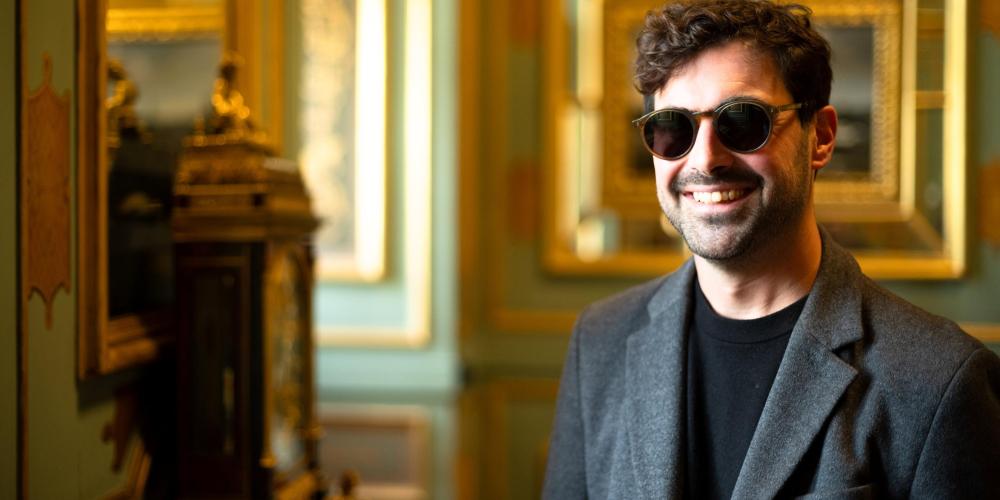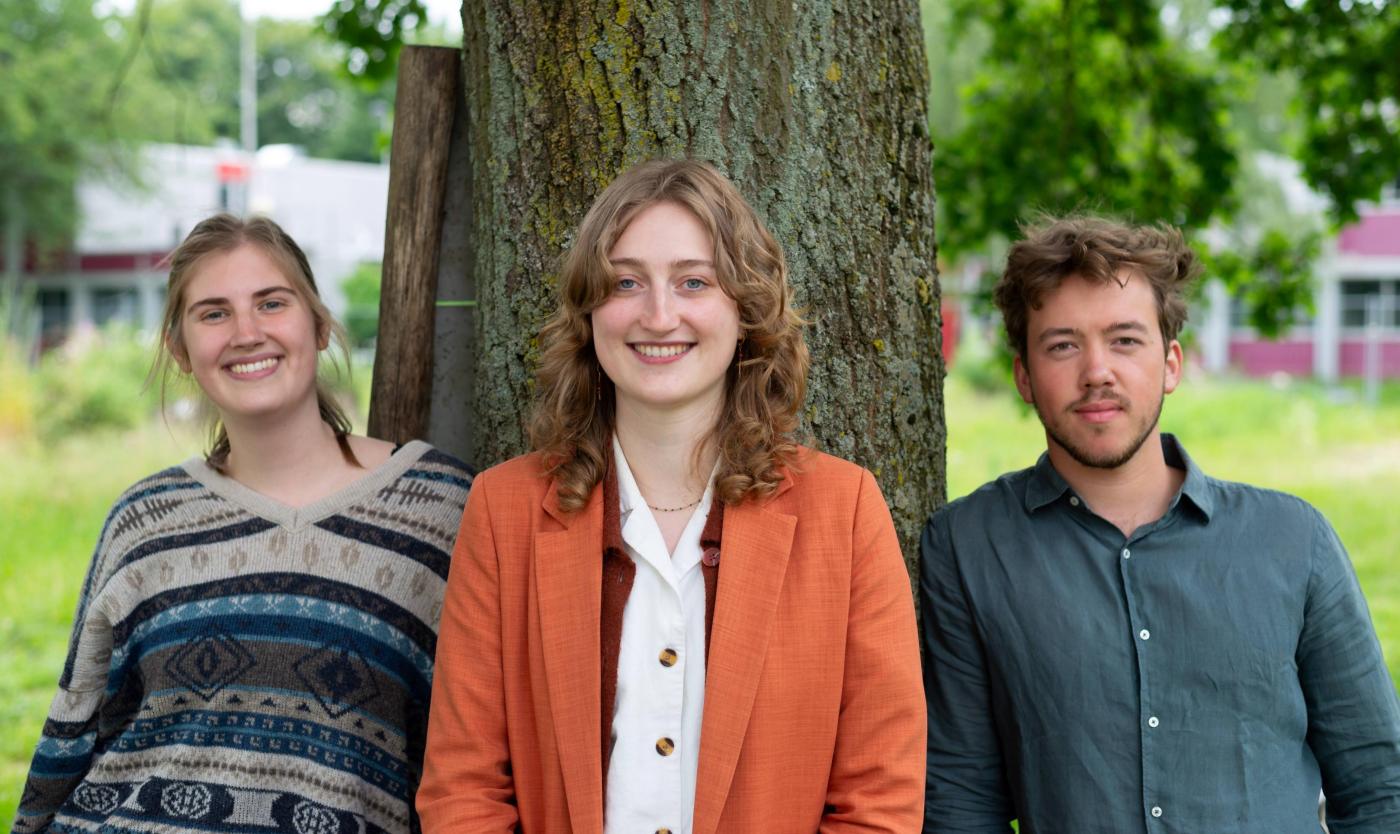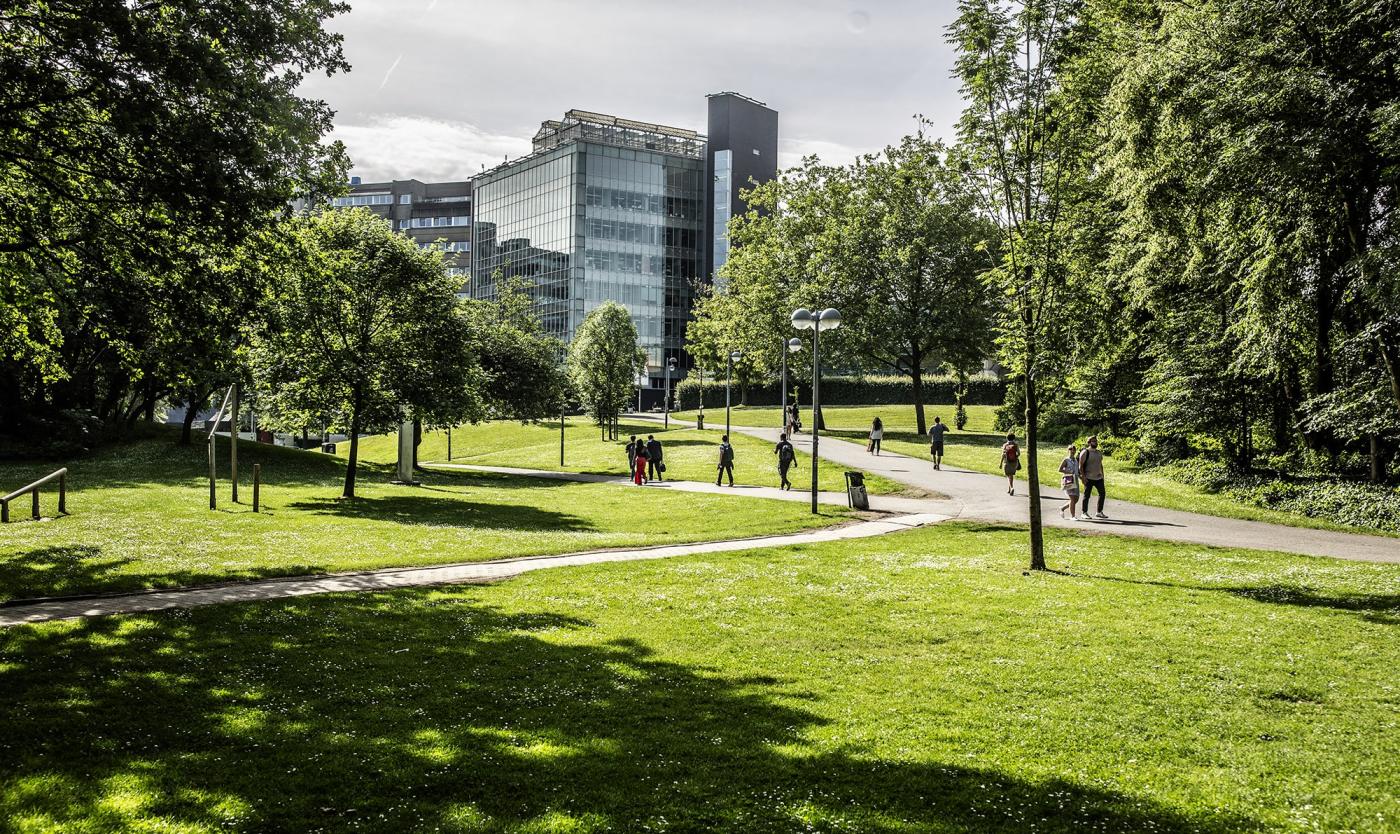
Karl Meesters, 45, is the passionate founder of the concert organisation ‘Rien à voir’ and the host of the travel show ‘Niks te zien’ on VRT. Graduating in 2005 with a Master’s in Applied Economics from the Solvay Business School, he reflects on both the enriching and challenging years when, due to a hereditary eye condition, he gradually lost his sight. “What advice would I give today’s alumni? In your career, you’ll experience successes, face challenges, and sometimes fail. And from each, you’ll learn.”
What does your current role entail, and what drives you in it?
Karl Meesters: “What I’m doing now isn’t directly related to my studies, which might suggest a corporate career path. Since graduating, I’ve followed a diverse route. I started out in the cabinet of then-Foreign Minister Karel De Gucht. After that, I spent around ten years as a life and career coach for elite Olympic and Paralympic athletes. Eventually, I forged my own path, launching a non-profit organisation. Through ‘Rien à voir,’ I organise concerts and help visually impaired young people develop their career aspirations. I’m also part of the VRT programme ‘Niks te zien’.”
“I arrived at VUB with sight and left with severe vision impairment.”
What memories do you have of your studies at VUB?
“I have two very different memories. One is the universal experience of starting university – the thrill of a new beginning. It was a brilliant time, looking back. But it was also when I started losing my sight gradually due to an inherited retinal condition. I came to VUB with good vision and left with serious impairment. Today, at 45, I’m legally blind. My student years were a mix of great enjoyment and deep concern – those two words capture it well.”
Are there any connections from your student days that have stayed with you?
“Certainly. On one level, there’s the academic side – proving to yourself what you’re capable of. But just as important to my career were the people I met. Friendships developed naturally, and connections with professors and friends’ contacts became invaluable. One of my closest friends is Frederik De Gucht, whose father, Karel De Gucht, then chairman of the VLD, gave me my first job opportunity. That was a key moment in my career.”
Did you have a clear idea of your career after university?
“To be honest, not at all. I didn’t even have a clear picture before university. I worked hard to fund both my studies and social life. ‘Business engineering’ felt like an open path, with plenty of directions to explore. However, as my vision deteriorated, my career outlook faded too. By the end of my studies, I had no idea where I’d end up.”

Do you think times are different for students now?
“Almost certainly. Students today can use AI to help with their dissertations! (laughs) We could cut a few corners, but it was less straightforward. We came of age in the open-minded 90s, a period of growing freedoms, which I think has diminished somewhat. Today’s students face bigger challenges – climate change, geopolitical tensions, and the technological revolution. They probably face an even greater sense of uncertainty about their career path than we did twenty years ago.”
Did VUB have a strong influence on your outlook?
“I’m glad I chose a secular university and wouldn’t change a thing. I went to Catholic schools for part of my secondary education, which didn’t suit me as they were very hierarchical. VUB was much more horizontal in approach, and that’s what resonates with me – even in how I raise my son.”
“Dreams are for the night; projects are for the day”
How are you trying to make a positive impact in society today?
“With ‘Rien à voir,’ I sometimes host concerts in the dark, to show that in those moments, there is no disability. We’re all enjoying great music, and sight doesn’t matter. I try to spread the same message through ‘Niks te zien,’ where I travel with musicians, exploring the power of sound and music along the way. Both projects have made a significant impact.”
What are your career aspirations now?
“A few years ago, I got more bad news: cancer. Thankfully, I’m doing well, but it’s changed my view of the future again. Now, I’m focused on some specific goals I want to accomplish in the next three years – and that’s it. Letting go of long-term plans has been liberating.”
Do you have any golden advice for today’s graduates?
“In your career, you’ll have successes, face challenges, and experience failures. Learn to approach all three as opportunities for growth.”
And specifically for students in your field?
“They’re the economists of tomorrow, the business leaders. They’ve proven they have what it takes to graduate, but I hope they also find and stay true to their own path.”
Biography Karl Meesters
- 45 years old
- 1999–2005: Bachelor’s in Business Engineering, Master’s in Applied Economics
- Founder of the concert organisation ‘Rien à voir,’ presenter of the travel show ‘Niks te zien’ (VRT)

